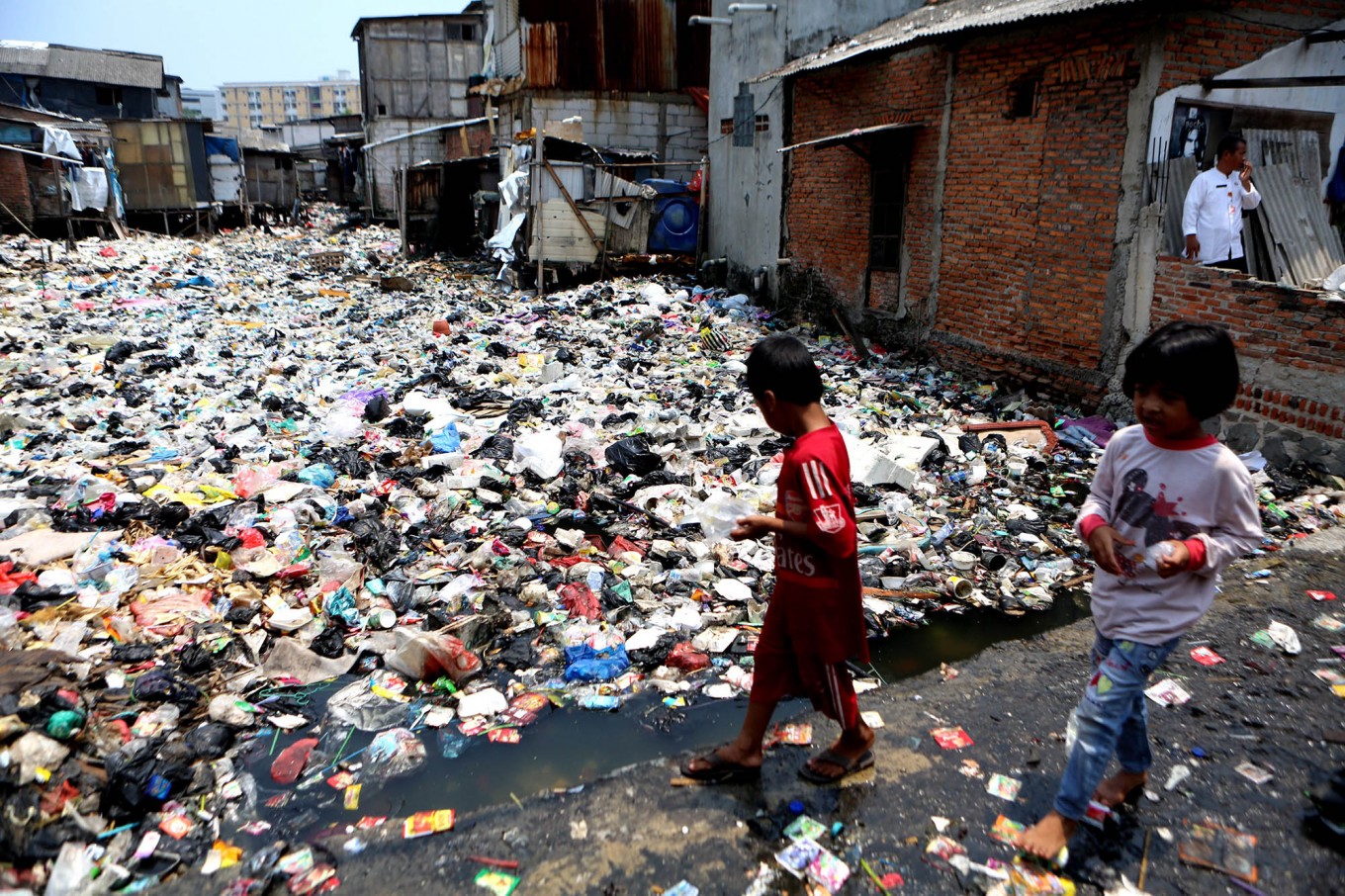Popular Reads
Top Results
Can't find what you're looking for?
View all search resultsPopular Reads
Top Results
Can't find what you're looking for?
View all search resultsJakarta expects 1,000 RW to establish waste banks
Change text size
Gift Premium Articles
to Anyone
T
he Jakarta Environment Agency expects 1,000 of the 2,700 community units (RW) in the capital to establish waste banks this year to help with waste management in the city.
Agency head Isnawa Adji said Monday that 400 RWs had already established waste banks in their neighborhoods.
A waste bank is a collection point for trash, where residents can drop their pre-sorted household waste in return for cash. The waste is divided into organic and non-organic. Organic waste gets turned into compost, while non-organic waste is divided further into three categories: plastic, paper and bottles and metal.
“We hope that mayors and district heads will take part to support the establishment of such facilities in their areas,” he said as quoted by beritajakarta.com.
He said that with the city's 10 million residents producing 7,000 tons of garbage per day, most of which was dumped at the 110-hectare Bantar Gebang landfill in West Java, waste management had been a problem for years.
“More waste banks will reduce the volume of waste at Bantar Gebang,” he said. (idb)










